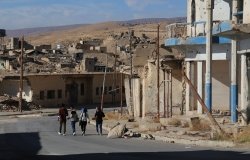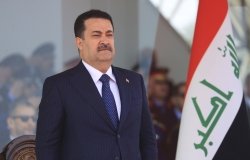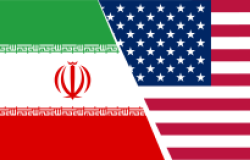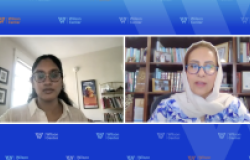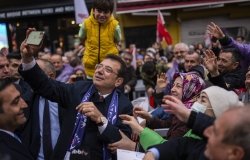Can We Get Iran Out of the Terrorism Business?
with Daniel Byman, Director, Security Studies Program and Center for Peace and Security Studies, Georgetown University; author of Deadly Connections: States that Sponsor Terrorism
Overview
This meeting was co-sponsored by the Division of International Security Studies and the Middle East Program.
Professor Byman focused on the threat posed by Iran within the context of his broader research on the challenge of state-sponsored terrorism. His main theme was that the United States could not induce or compel Iran to cease its support of terrorism because that instrument has particular "strategic value for a weak state." Thus, the Tehran regime will continue to view terrorism as an option to be preserved for political leverage, as well as a deterrent. At best, the United States can aspire to limit the scope of Iran's sponsorship and indirect support of terrorist activities.
Ideological antipathy has made Israel the primary focus of Iranian terrorism. In providing aid to groups, such as Hamas and Hizbollah, which employ terrorism, Iran seeks to keep the violence going to prevent an Israeli-Palestinian settlement and to avoid its own isolation.
In Iraq, Britain has charged that Iran is arming groups that are attacking British troops, but the degree of Iranian involvement and control is uncertain. Iranian intelligence officers and Revolutionary Guards have been reported throughout the country. Iran's focus has been primarily on the Shi'a communities, whose leaders are not Iranian pawns, but have close relations with Iranian leaders. But Iran also has ties with various Kurdish and Sunni groups, including the jihadists. According to Byman, Iran's strategic goal is, again, to maintain options for scenarios either in which the United States remains in or leaves Iraq. The current situation is contradictory: Iran does not want the United States in Iraq, but U.S. forces are aligned with pro-Iran elements; Tehran does not want instability in Iraq, but its best weapon is instability. Terrorism gives Iran tremendous leverage; a few hundred active fighters in the Shiite areas could inflame the area.
Iran has had past contact with Al Qaeda, but the relationship has been largely indirect and tactical. After 9/11, the Tehran regime initially cooperated with the United States and many jihadists in Iran were sent back to their home countries. Its house arrest of Al Qaeda operatives has fueled speculation that Iran is using them as a bargaining chip for anti-Iran terrorists (the Mujahedin-E-Khalq) that the United States has detained in Iraq. Iran was implicated in Al Qaeda's May 2003 bombing of the Khobar Towers (housing U.S. air force personnel) in Saudi Arabia and then claimed that it had cracked down on this terrorist group. Byman observed that this episode is a characteristic example of the way in which Iran escalates even as it seeks to negotiate.
Since the Khobar Towers bombing, Iran has refrained from directly striking American targets, perhaps out of fear of U.S. military retaliation. But, in turn, Iran retains an interest in preserving terrorism as an option to deter the United States (e.g., Hizbollah cells have been discovered in the United States, Iranian agents have been detected casing U.S. embassies overseas).
The U.S. ability to exert coercive pressure is limited: the European allies, who do not perceive Iran as a direct threat, are reluctant to join the United States and the results of economic pressure are mixed. Indeed, with the current high price of oil, the Iranian regime is economically insulated from international and domestic pressures to change its foreign policy behavior with respect to terrorism.
Hosted By

Middle East Program
The Wilson Center’s Middle East Program serves as a crucial resource for the policymaking community and beyond, providing analyses and research that helps inform US foreign policymaking, stimulates public debate, and expands knowledge about issues in the wider Middle East and North Africa (MENA) region. Read more
Thank you for your interest in this event. Please send any feedback or questions to our Events staff.






